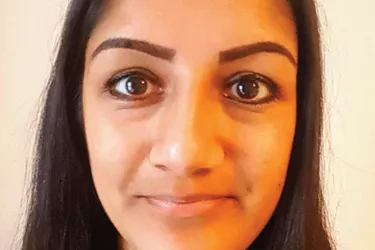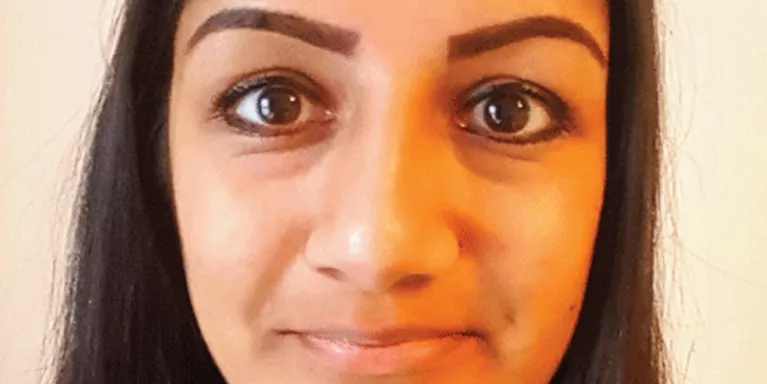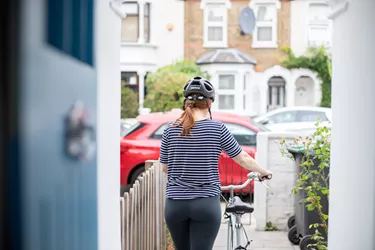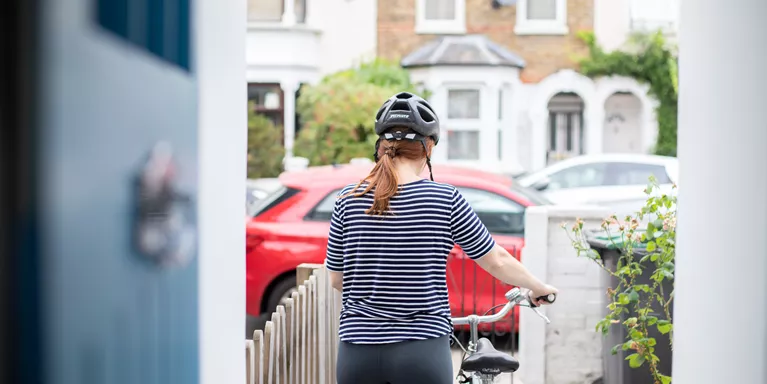A disordered personality?
Debbie recently starred in our new film on borderline personality disorder. Here she talks about how how living in a therapeutic community and receiving dialectical behaviour therapy helped her to manage.
After struggling with eating problems, depression, anxiety and self-harm since my early teens I was given the diagnosis of borderline personality disorder (BPD) during my first admission to an acute psychiatric ward, aged 23. Initially, like most, I knew nothing about BPD and was both horrified and ashamed at those words being used to describe me. Some friends and family even chuckled when I told them and who could blame them. A disordered personality? It sounded awful!
I became so focused on the words in the label that I found myself searching for ways to reject it. I discovered that part of the criteria for BPD was 'difficulty maintaining relationships'. So how could I have BPD? I was (and still am) in a long term relationship, happily engaged and living together.
So I ignored the diagnosis and I fought hard to get on with life as "normal", trying desperately to complete my nursing degree with the support of community psychiatric services.
"The stress was too much"
Unfortunately as I reached the end of my final year the stress was too much for me and I once again turned to using self-harm and suicidal behaviours to cope. I ended up being sectioned and taken back to the psychiatric ward. Even after this admission I continued on my path of self-destruction, seeing nothing left to fight for.
Unsurprisingly this resulted in further admissions. After a particularly distressing admission involving the police, I decided things couldn't continue on as they were. I had lost my career path, my family were getting increasingly frustrated and my partner was becoming unwell too. My care coordinator at that time recognised the cycle I was stuck in and did some research into places I could go to get help and break free. She told me about a specialist inpatient Dialectical Behavioural Therapy (DBT) focused programme for women with BPD.
"I was going to have to accept the diagnosis of BPD"
DBT is a type of therapy specifically for individuals with BPD, so to access these services it was clear I was going to have to accept the diagnosis. This was something I had been reluctant to do before. I read the information I was given on the programme and was invited to go and be assessed for a place. The real turning point for me was meeting and talking to the other women on the programme. When I saw how much we had in common, it forced me to look beyond the words in the label and learn about what people meant when they said 'BPD'.
I learnt there is a list of criteria that needs to be met in order to be diagnosed with BPD, but crucially for me I found out you don't necessarily need to experience ALL of these symptoms. This taught me that people who share the same diagnosis can present very differently dependent on their predominant symptoms. It also challenged the main argument I had against accepting my diagnosis as it showed me I didn't need to have difficulty maintaining relationships to have BPD.
As well as learning about the condition DBT taught me to notice what I was doing to myself, understand why, consider whether I deserved to feel this way and begin to do things differently.
Learning about and how to use DBT skills wasn't easy. It was anything but. I still struggle to get my head around some of the concepts even now. Some of the terms such as "half-smile" and "self-soothe" made me literally squirm with discomfort at the thought of them. However I do recognise this was more to do with how I feel about myself.
Despite the effort required, I know it was what finally allowed me to begin my recovery.
"I do still have days when everything feels too much"
I struggle to accept myself and I get stuck in comparisons between myself and my siblings or peers, wondering why I have BPD and they don't. But these days are fewer in number, and with the insight I have gained, a hell of a lot easier to manage!
Looking back, I would say being given a diagnosis of BPD has actually turned out to be beneficial to me. It has allowed me to access particular services that supported me to break free from my cycle of self destruction and transform my life for the better.
I do recognise and know of others who do not share my view, some can't accept it or feel ashamed because of the stigma still attached and others because of poor treatment they have received following being diagnosed. Which is very sad given the widespread acceptance of individuals with other mental health conditions.
I feel strongly that educating everybody better about personality disorders could help some of those facing the diagnosis to reach acceptance and access the help they need quicker. This will allow them to get to the point where having BPD is only part of who they are and not what defines them.
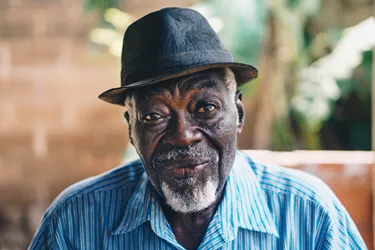

Information and support
When you’re living with a mental health problem, or supporting someone who is, having access to the right information - about a condition, treatment options, or practical issues - is vital. Visit our information pages to find out more.
Share your story with others
Blogs and stories can show that people with mental health problems are cared about, understood and listened to. We can use it to challenge the status quo and change attitudes.












